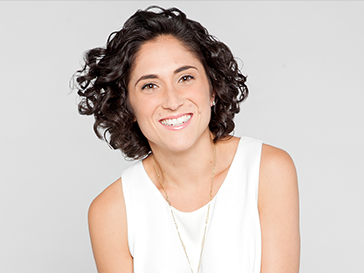The Most Important Thing You Can Do To Improve Digestion
July 09, 2018

“Didn’t yo mama ever tell you to chew your damn food?!” I used to say to my brother. I remember sitting next to him at the dinner table and being in awe (and slight disgust) as I watched him take a huge bite of food, chew it twice, and then swallow it in one lump. Then, I would look over at my father who was shoveling in a new bite of food into his mouth while he was still chewing the old one. I wondered if there was some secret race that I wasn't invited to and if that meant there was a prize at stake. I better hurry up because I’m eatin’ my brother’s dust. I personally blame them as to why I grew up to be an unconscious eater, a bad habit that I had to unlearn as I got older.
Once I learned the science of what was happening when I didn’t chew my food, it helped me to slooooooow down and enjoy the ride.
Here are the benefits of thoroughly chewing your food:
It allows you to absorb more nutrients.
When you chew your food properly, you break it down into smaller pieces, which are much easier for your body to digest and assimilate. Saliva lubricates the food and contains digestive enzymes that aid in breaking it down. This makes for easier digestion in your stomach and small intestine, thus preventing undigested food from entering your bloodstream.
It can help you maintain a healthy weight.
Your body produces a hormone called leptin, which signals your brain that you are full and should stop eating. Sounds great, but leptin has a 15-20 minute lag time! Therefore, the more you chew, the slower you eat, which gives leptin time to kick in. This will allow you to eat less, feel full, and decrease your caloric intake. Winner!
It's good for your teeth.
Did you know that chewing is a workout? Yep, you heard it here, folks. You can't just chew all day and count that as your daily exercise, but it's a great workout for the bones in your jaw. Regularly working out your jaw keeps the bones strong. Saliva clears food particles from your mouth and washes away bacteria, which means less plaque and tooth decay. Your dentist may not be happy to see you less, but we'll let you pick a toy from the #NutWiz treasure chest.
It clears excess bacteria from your intestines.
Undigested food that makes its way into the intestines will either become food for the bacteria that live there or it will be left to putrefy. This can lead to numerous digestive issues, including gas, bloating, diarrhea, constipation, abdominal pain and/or cramping. The issues can also be caused by food intolerances or the presence of yeast and parasites, but simply chewing your food properly could be the answer to your digestive woes. And it doesn't involve eliminating foods from your diet or pooping in a box (that's how we test for creepy crawlies in your gut), and it's FREE!
It allows you to fully enjoy your food!
Well, that in itself should be enough to convince you! Slow down, chew your food and enjoy the company around you. It's more fun to savor each bite! To eat well is to live well.
Ready to dive in? Here are some of our kid-tested, mother-approved Kix... I mean tips!
- Eat in a relaxed environment. This does not include eating on the go, in the car, while working, or in front of the TV. Focus on the meal and stay present. It's all about conscious eating! If you're stressed while you are eating, your sympathetic nervous system (your "fight or flight" response) is activated, which signals your salivary glands to stop producing saliva.
- Before you take a bite, take a moment to smell your food. This will activate your parasympathetic nervous system (your "rest and repair" response), which then stimulates your salivary glands to produce saliva that will help you efficiently break down your food.
- Take smaller bites and chew slowly until your food is liquified and has lost all texture. Do you like seafood?
- Chew and swallow completely before taking another bite. Setting your fork down between bites will help.
- Wait to drink fluids until you've swallowed. Even better, don't drink any fluids 30 minutes before, during, or within 30 minutes of finishing a meal. Drinking while eating will only slow down digestion.






